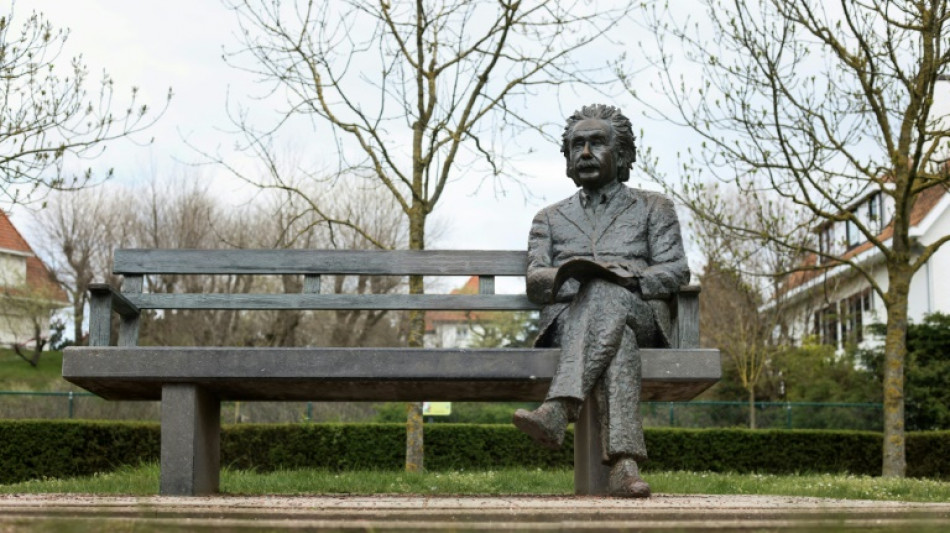
-
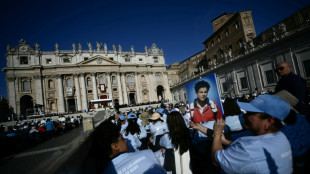 Huge crowds at the Vatican as teen becomes first millennial saint
Huge crowds at the Vatican as teen becomes first millennial saint
-
Japan PM decides to quit as opponents seek leadership election: reports
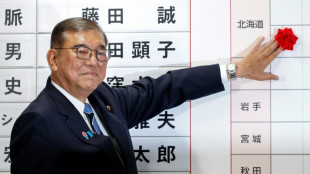
-
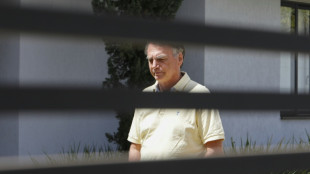 Bolsonaro supporters called to streets ahead of coup trial verdict
Bolsonaro supporters called to streets ahead of coup trial verdict
-
Russia hits seat of Ukraine government in war's biggest air attack

-
 All Blacks lose injured Taylor for second Springboks Test
All Blacks lose injured Taylor for second Springboks Test
-
Experts say great white shark likely killed Australian surfer
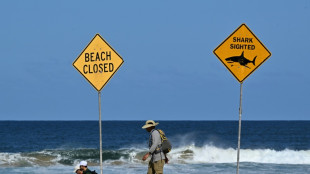
-
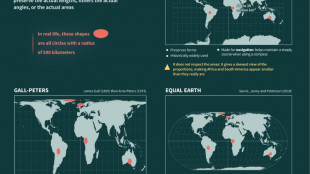 'Correcting The Map': reshaping perceptions of Africa
'Correcting The Map': reshaping perceptions of Africa
-
Overcrowding kills infant gorillas in Rwanda habitat

-
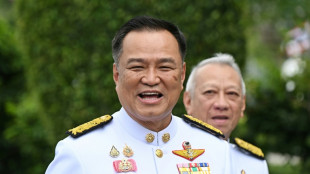 Thai cannabis-championing tycoon takes office as PM
Thai cannabis-championing tycoon takes office as PM
-
Japan, Mexico in goalless draw as World Cup preparations ramp up

-
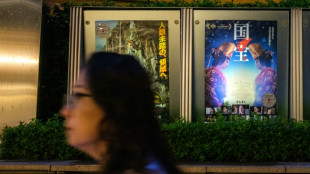 A 'real' movie fights back in anime-ruled Japan
A 'real' movie fights back in anime-ruled Japan
-
Will Harry meet King Charles on trip to UK?
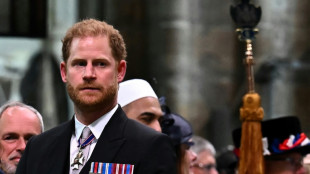
-
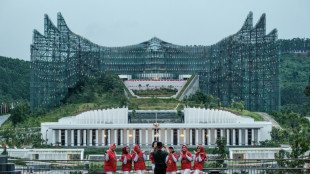 Indonesia's delayed new capital risks 'white elephant' status
Indonesia's delayed new capital risks 'white elephant' status
-
Catholic teen set to become first millennial saint

-
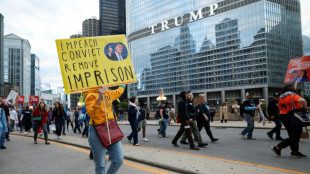 Trump escalates crackdown threats with Chicago 'war' warning
Trump escalates crackdown threats with Chicago 'war' warning
-
Tough negotiations and uncertainty ahead of OPEC+ meeting

-
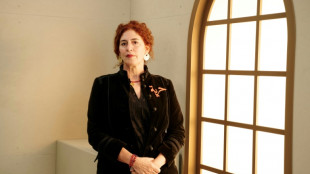 'Palestine 36' shines light on Arab revolt against British rule
'Palestine 36' shines light on Arab revolt against British rule
-
'Build, baby, build': Canada PM's plan to counter Trump

-
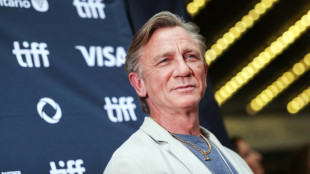 Craig's detective returns as new 'Knives Out' lights up Toronto fest
Craig's detective returns as new 'Knives Out' lights up Toronto fest
-
First India-Pakistan match since conflict fires up Asia Cup
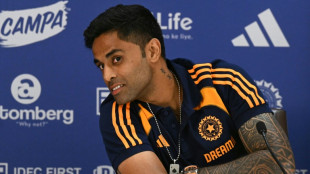
-
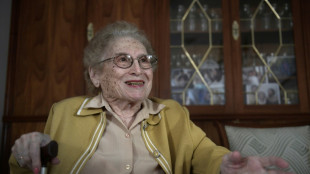 Rosa Roisinblit, activist for Argentina's 'stolen' children, dies at 106
Rosa Roisinblit, activist for Argentina's 'stolen' children, dies at 106
-
Australia halts logging for koala haven on eastern coast

-
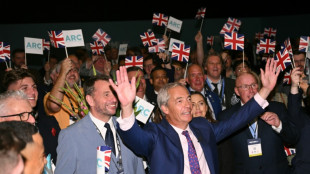 'Pessimist patriots': hard-right Reform UK widens appeal
'Pessimist patriots': hard-right Reform UK widens appeal
-
UK police arrest hundreds in latest Palestine Action demo

-
 Anisimova laments 'lack of fight' in US Open final loss
Anisimova laments 'lack of fight' in US Open final loss
-
Controlling emotions behind US Open triumph: Sabalenka

-
 Anthony, Howard among Basketball Hall of Fame inductees
Anthony, Howard among Basketball Hall of Fame inductees
-
Australian state halts logging for koala haven

-
 Taming inner 'tiger' takes Sabalenka to the top
Taming inner 'tiger' takes Sabalenka to the top
-
Japan's Oda completes career golden Slam at US Open

-
 Son scores and assists to lead South Korea over host USA 2-0
Son scores and assists to lead South Korea over host USA 2-0
-
Granollers, Zeballos win men's US Open doubles in thriller

-
 Sabalenka defeats Anisimova to retain US Open crown
Sabalenka defeats Anisimova to retain US Open crown
-
Bordeaux-Begles win to start Top 14 season, Stade Francais run in seven

-
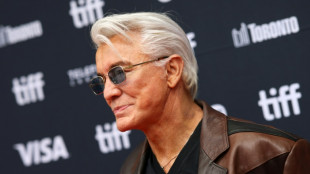 Luhrmann mines 'mythical' Elvis footage for new film
Luhrmann mines 'mythical' Elvis footage for new film
-
England's Kildunne set to miss Women's Rugby World Cup quarter-final with head injury

-
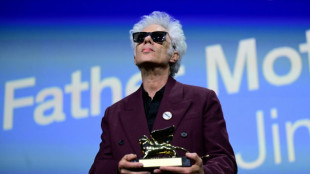 Indie favourite Jarmusch beats Gaza war film to Venice top prize
Indie favourite Jarmusch beats Gaza war film to Venice top prize
-
Lisbon funicular cable disconnected before deadly crash: inspectors
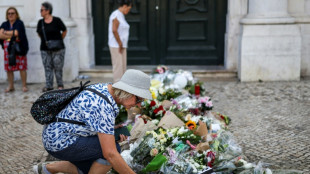
-
 England have to 'prove a point' in Serbia test: Tuchel
England have to 'prove a point' in Serbia test: Tuchel
-
Poignant Portugal cruise, England unbeaten in World Cup qualifying
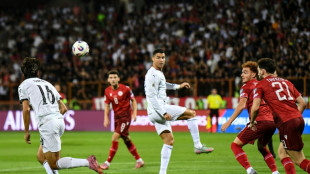
-
 England down Australia, face Scotland in Women's Rugby World Cup quarter-finals
England down Australia, face Scotland in Women's Rugby World Cup quarter-finals
-
Italy's Toni Servillo wins best actor at Venice
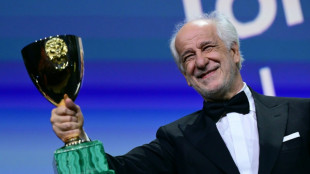
-
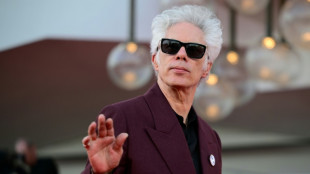 Indie favorite Jarmusch beats out Gaza war film for Venice top prize
Indie favorite Jarmusch beats out Gaza war film for Venice top prize
-
China's Xin Zhilei wins best actress award at Venice Film Festival

-
 England to face Scotland in Women's Rugby World Cup quarter-finals after record-equalling win over Australia
England to face Scotland in Women's Rugby World Cup quarter-finals after record-equalling win over Australia
-
Jihadists kill 63 in attack on Nigerian town
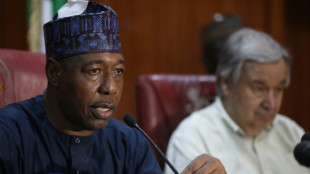
-
 UK police arrest 150 people in latest Palestine Action demo
UK police arrest 150 people in latest Palestine Action demo
-
Sinner and Alcaraz set for gripping third act in US Open final

-
 McIlroy in hunt for first win since Masters at Irish Open
McIlroy in hunt for first win since Masters at Irish Open
-
Laboured England beat Andorra to extend 100 percent record on road to World Cup


Einstein's risky Belgian stay after Hitler came to power
Sitting alone on a bench, legs crossed, Albert Einstein enjoys the tranquillity of a public park in the Belgian coastal resort of De Haan.
His bronze statue attracts excited tourists to the town where the famous 1921 Nobel physics laureate sojourned 90 years ago, despite a Nazi secret society putting a price to his head.
He never returned to Europe again.
It is a relatively unknown episode in the life of the American physicist of German Jewish origin, who was born in 1879 and died in 1955.
When Adolf Hitler came to power in early 1933, Einstein, a native of the southern German city of Ulm, was already teaching his theory of relativity in the United States.
Hitler's Nazi Germany swiftly hunted Jews, targeting Einstein's home near Berlin and confiscating his belongings.
On his return to Europe from across the Atlantic, Einstein landed in Belgium in March 1933 with Elsa, his second wife, fearful that returning to Germany would be too dangerous.
The physicist spent six months at De Haan under the careful watch of Belgian police.
"My mother knew Einstein well when she was young. Every morning, he walked on the promenade or on the beach," said Brigitte Hochs, a 78-year-old Belgian guiding an AFP team in the scientist's footsteps.
The Hochs family ran the Bellevue Hotel for decades, with a building in the Belle Epoque style.
The Einsteins rented one of them, the Villa Savoyarde.
- Playing violin with a queen -
Einstein would have a coffee on the hotel's terrace after his walk in the fresh air. "It was his routine," said Hochs.
She said another famous Albert, the Belgian king Albert I whose wife was a Bavarian duchess, played a large role in Einstein's short exile.
"The king strongly advised Einstein not to return to Germany," said Hochs.
Einstein knew the royal couple because he took part in congresses in Brussels. As well as the German language, he shared a love of the violin with queen Elisabeth. "They even played together," Hochs added.
The physicist's "Flemish" adventure inspired a comic last year by Belgian screenwriter Rudi Miel, who described the short exile as "a thriller", noting that Einstein was under police watch because of "death threats".
In the comic, "Le Coq-sur-Mer, 1933", referring to De Haan's French name Le Coq, Einstein, with his famously awry grey hair and thick moustache, appears as a hunted man in the drawings by Baudouin Deville.
The author imagines a blonde spy in a trench coat, pistol in hand, sent by the Nazis to kidnap Einstein as part of the Third Reich's research on the atomic bomb.
Einstein's discoveries on mass and energy from his famous equation E=mc2 laid the foundations for future nuclear fission, despite being him a pacifist all of his life.
- 'A real jackpot' -
In reality, there was never any kidnapping attempt while he was in Belgium.
But the file devoted to him in the Belgian state archives shows the extent to which Einstein was threatened during his escapades on the shores of the North Sea.
"The file is a real jackpot. Through the surveillance reports, we discover professor Einstein's personality," said archivist Filip Strubbe.
"One of the reports says he liked to walk on the promenade at 2:00 am or 3:00 am without notifying police. This made his protection difficult."
Two state security officials had to closely follow his every action because the Nazis put a price on his head.
One Nazi magazine named Einstein as an "enemy of the regime" and put a $5,000 bounty (worth more than $110,000 today) on his head.
When a Jewish researcher was shot dead in the Czech Republic in August 1933 on Nazi orders, Einstein understood he was no longer safe in Belgium.
From the Belgian port city of Ostend, he went to London from where he emigrated to the United States.
Einstein might have appreciated the many stories about his life.
The statue in De Haan is accompanied by one of his most famous quotes: "Imagination is more important than knowledge."
I.Meyer--BTB
